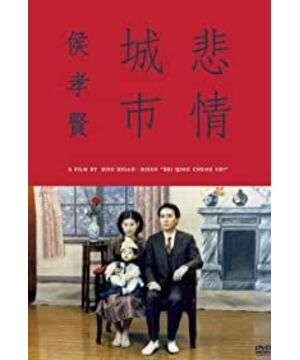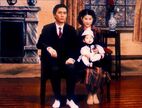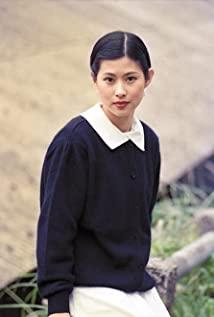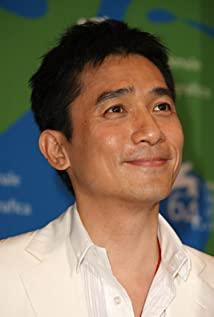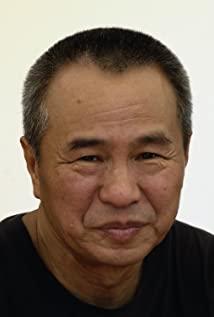It took almost 5 hours to watch a movie that lasted nearly 3 hours. From 10 pm to 3 am, there was a pause in the middle, and I cooked a bowl of noodles for myself.
In those dark nights, most of the time there is silence or only loud background sound, and the subject of the shot has no actual language.
Impressive is the background music.
Sounds too inopportune or too out of place, symbolizing the spectator of life, unable to express and resist.
There are also narration and subtitles. It is a wide and beautiful letter diary, a pen and paper exchange with Wenqing, there are only a few vertical rows of traditional Chinese characters left on the screen, the camera fades out, and the large blank space makes people feel desolate.
It is a film with a strong historical background, but the film is more concerned with the bumps in personal fate, even if it is only the slightest blood left in the dark history, it seems to be more deeply rooted in the hearts of the people. Just like at the beginning of the film, the news of the Japanese emperor's defeat in the war was almost covered up by the camera. What we saw was only the birth of a new life. No matter how magnificent the country's environment is, the individual has always been displaced by fate.
The love between Wen Qing and Kuan Mei's peaceful narrative is the plot that impressed me the most. From the very beginning, Wen Qing picked up Kuan Mei for Tolerance, to their pen conversation, behind the noisy picture, Kuan Mei approached the inaudible Wen Qing step by step with pen and paper. After the February 28 incident, Wen Qing was involved in jail, and when he announced his trial, I took a breath and waited for the same gunshots as before. When the camera turned, I found that Wen Qing was not dead. When he returned home, Kuan Mei had been waiting for a long time. The two were relatively speechless, sitting at the table, and after a long while, they hurriedly started talking with pen and paper. On the mountain, Wen Qing found the tolerance of seclusion, and his expression was fierce and silent. The only heart-wrenching love in this film seems to be a huge suspense, until after the wedding, we finally see the faces of Wen Qing and Kuan Mei, whether the love is successful at this moment, or the beginning of a cruel reality cat-and-mouse game. When Kuan Mei reappeared, she was already pregnant, and then the child was born. Kuan Mei recorded in her diary the definite happiness, and the news of Tolerant's death broke everything. On the screen, Kuan Mei took the letter with the news of her brother's tolerant death, read it, struggled He continued to feed the child a mouthful of food, but he still cried while leaning on Wen Qing's shoulder. They prepared to escape and finally came back, and only the child was smiling in the family portrait. At the end of the film, we learned from the letter from home that Wen Qing was arrested, but Kuan Mei's tone was so calm that I didn't even shed tears.
And the death of the elder brother Wenxiong. He is the image of a traditional Chinese elder brother that you can imagine. He is responsible for the family, educates the brothers, comes forward to deal with various family problems again and again, swears loudly, and is full of courage. The funeral, the film does not give people a chance to breathe.
The fate of the characters in the whole film follows the history, from the recovery of Taiwan, to the night when the "Trilogy in Exile" was sung, to the influx of "people from other provinces" to Taiwan, to the February 28 Incident, but history retreats. Behind the scenes, only the fate of the characters changes. Tolerance fled to the mountains to live in seclusion and educate the mountain people, creating the illusion that everything was calm, but in the end, he could not escape death. After Wen Qing was released from prison, he brought back some relics. The blood book clearly reads "Live with dignity." At the end of the film, the family's elderly and children are sitting at the table to eat. It is such a family: the eldest son died Fighting with guns, the second son has no news of being recruited by the Japanese, the third son is insane, and the fourth son is arrested, but it is such a family, but it is still maintained, like any ordinary family in China, calm and unable to find it any loopholes.
Also, just a few hours before watching this movie, I was having a heated discussion with someone at the dinner table about the status quo of Taiwan Strait, and a few hours later, Taiwan was so real and spread out in front of my eyes, with lush greenery, but my heart was full of surprises. For a while of desolation, there is a line in the play, "Did you ask our opinion when you sold Taiwan to the Japanese?" After experiencing Japan's colonial rule, Chiang Kai-shek's troops were defeated and retreated to Taiwan, and Taipei became a "wartime" under the slogan of "counterattack the mainland". In the capital, the conflicts and confrontations between "people from other provinces" and the native people of Taiwan, and now Taiwan, which is trying to "de-sinicize", some people in the film said "Leave the motherland, die to the motherland", but I don't know, the foreign country can deny the hometown .
View more about A City of Sadness reviews


